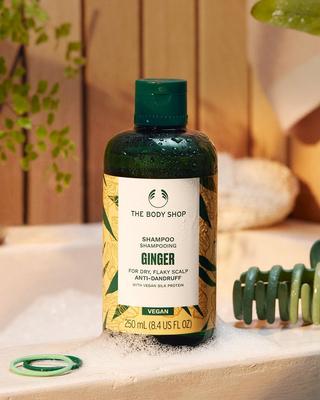?$amplience-ct1-xs-img1$&fmt=auto)
?$amplience-ct1-xs-img1$&fmt=auto)
HOW TO TACKLE DANDRUFF
Let’s be honest, nobody wants loose flakes. Read our guide
on what it is & how to shift it.
Let’s be honest, nobody wants loose flakes. Read our guide on what it is & how to shift it.
OUR BEST HAIRCARE FOR DANDRUFF & A DRY SCALP
Help free your hair from flakes with our 3-step Ginger haircare routine. Enriched with ginger essential oil, birch bark and white willow bark extracts, our ginger haircare routine is our holy trinity to help beat dry, flaky scalps. It helps to soothe, nourish and rebalance dry scalps, and helps fend off flakes and itchiness caused by dryness.***

GINGER ANTI-DANDRUFF SHAMPOO
Our bestselling shampoo is now more powerful than ever. It’s now vegan and made with 90% ingredients of natural origin. It helps clear flakes and leaves dry, itchy scalps feeling soothed and rebalanced.***

GINGER SCALP CARE CONDITIONER
Unlike most conditioners, this is designed to be applied directly to the scalp as well as the hair. Our conditioner helps soothe dry scalps and leaves weak hair feeling stronger, softer and more resilient.***

GINGER SCALP SERUM
This fast-absorbing, non-greasy serum nourishes and helps rebalance the scalp. It also helps soothe the dryness and helps wash away loose flakes, even between washes. Your scalp will look and feel instantly healthier.***


"Great staple for hair! This is our all time favourite, the only anti dandruff shampoo that cares for our hair whilst tackling dandruff…it smells great too!"
Aman Sadhr
WHAT’S THE DIFFERENCE BETWEEN DANDRUFF AND A DRY SCALP?
Dandruff and a dry scalp are very similar scalp problems, but once you know the difference between the two types of flakes, you can decipher what you’re dealing with quite easily. And, rest assured, they’re both very common, lots of people have dandruff and a dry scalp, so you’re definitely not alone.

